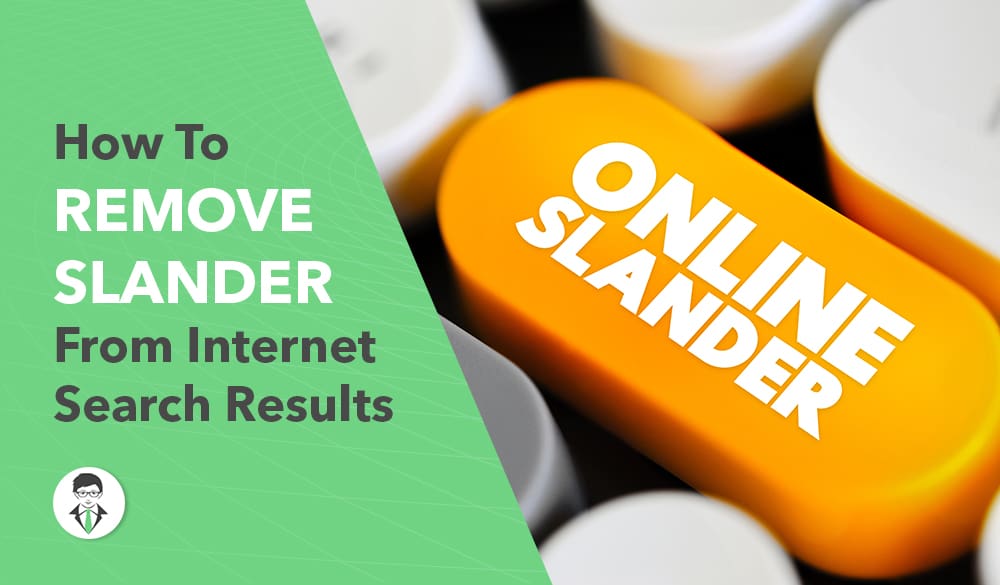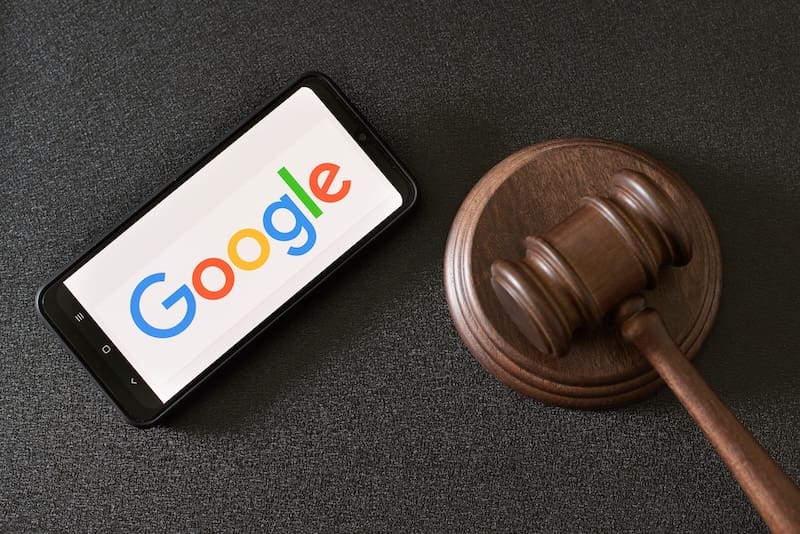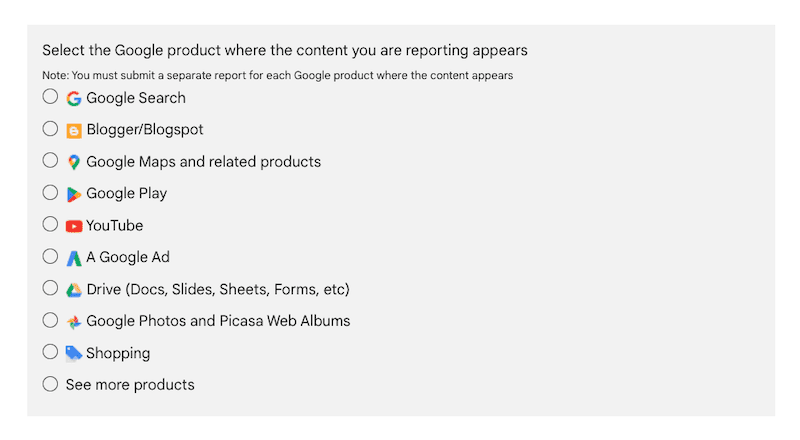In this article, we’ll discuss how to remove slander from internet search results and why negative content can be so damaging to an individual’s or brand’s online reputation.
Today, we all use the internet to search for practically anything — information about a product you want to buy, reviews of restaurants before you book a table, and even negative content about a person you’re considering hiring or dating.
When positive information is found about a person or business you’re researching, this makes a great first impression. You’ll feel more comfortable moving forward and trusting that individual or brand.
But if you find negative content online, that’s another story. It’s hard to reverse a bad first impression, and you may never give that person or company a second chance.
When you’re the victim of online defamatory content, it can feel like the world is against you.
What Is Online Defamation?
According to Nolo, online defamation occurs when someone makes a verbal or written false statement about you that causes damage to your reputation.
Traditionally, defamation took place in other types of media, like TV, radio, newspapers and magazines. Today, though, online defamation can happen on social media, community forums, review sites, blogs, etc. That includes:
- Review websites like Amazon, Google, Tripadvisor or Yelp
- Social media platforms like Instagram, Facebook, TikTok or YouTube
- News publications, articles or journals
It’s common for online defamation to occur because a competing business is trying to take your business down. News articles, online reviews and social media posts may be used to say damaging things about your company.
In most states, you can sue for defamation and receive money as compensation. In the event of cyberbullying or harassment, though, sentences can include jail or prison time.
What Is Slander vs. Libel?
Slander and libel are both types of online defamation. Slander is verbal defamation, while libel is written defamation. For example, libel may occur in the following written forms:
- Blogs
- Books
- Magazines
- Newsletters
- Newspapers
- Social media
- Websites
Slander may occur on a video recording or in a podcast. Defamatory statements can also be made in a recorded phone call.
What Does Defamation Not Include?
The primary element of defamation is that the statement made was false. If what the person said is actually true, you won’t have a defamation case to prove. You also won’t be able to submit a defamation-related court order to Google to have the content removed.
However, even true information or an opinion about you or your business that’s causing harm can be removed. You just won’t take a legal road to do so.
In this case, the services of an online reputation management company can help. They have the tools and expertise to clean up your online image and restore a positive reputation.
Internet Defamation Can Damage Your Online Reputation
Search engines unintentionally help the spread of defamatory content and false information. It’s most common for people to find the content on a search engine like Google, where otherwise they may not have come across it at all. That’s why it’s just as important to remove the content from search results as it is to remove the content at its source.
Remember, though, that Google doesn’t create bad content; it just amplifies it.
Search engines index what’s already online; they’re not responsible for posting that content in the first place. From there, search engines give users relevant results based on the keywords they enter.
Consequences of Having Negative Content Online
There are so many ways that defamatory content can damage a person’s online reputation and personal life. Here are just a few of them:
- It can form a bad first impression and shape the public’s perception of you from the very start.
- Prominent search results with defamatory material can overshadow less-prominent positive search results.
- People won’t feel they can trust you any longer, either personally or professionally (or both, in the worst circumstances).
- Recruiters and employers may no longer consider you a good candidate for a job that you want.
- If you’re a business owner, negative material can lead to financial losses.
- Backlash on social media sites can spread quickly and get out of control, damaging your public perception as well as personal relationships.
- Cyberbullying can occur along with internet defamation, which can lead to anxiety, stress and other mental health issues.
- Even online defamation that only refers to business matters can cause strain in an individual’s personal life.
- If you have to file a defamation lawsuit, the legal process can be long, expensive and taxing on your health.
- Repairing a damaged online reputation is difficult to do on your own. You may want to hire an ORM company with the skills and tools necessary to help.
This is why it’s so important to monitor your online reputation and handle slander and defamatory content as soon as possible. An ORM company like NetReputation can monitor your name or brand online to catch when someone decides to post defamatory content right away.
How To Prove Your Defamation Claim
If you decide it’s best to file a defamation lawsuit, you’ll need to back up your claims. While the law may vary based on your location, in general, you’ll need to prove the following:
- The defendant made a false statement and presented it as fact
- The statement was made to someone other than yourself (the plaintiff)
- Your reputation was harmed by the statement
- The defendant was careless (“negligent,” in legal terms) about whether or not the statement was accurate
It can be pretty difficult to prove defamation, even if it seems obvious to you that the statement was a lie and caused harm to your online reputation. It’s common for defendants to say that they expressed their opinion and didn’t intend to make a factual statement.
Whether or not you opt to move forward with a defamation case, you may be able to request the removal of defamatory content posted on various websites and platforms.
Removing Negative Content From the Internet
Internet defamation always brings with it the question of free speech vs. the right to defend your reputation. With so many online opportunities for people to say whatever they want, it’s easy for anyone to ruin an individual’s or brand’s reputation with a review, post, article or comment. You have options for protecting yourself, though.
Know Which Websites Publish Defamatory Content
There are some websites that are designed to publish negative information and defamatory statements about businesses. For example, Ripoff Report lets angry customers post lengthy, harmful statements about businesses without ever vetting their complaints for accuracy.
If you need help with Ripoff Report removal, contact NetReputation today at 844-461-3632.
There are also websites that aren’t designed to publish defamatory content but end up doing so anyway. For example, review websites like Google and Yelp end up hosting defamatory content when angry customers put up posts.
Knowing which websites may have defamatory content about you can help you clean up your online reputation and monitor for future mentions. If you need help with this, contact the experts at NetReputation.
Request a Free Consultation
Ask Google To Remove the Content via Court Order
In the event of defamatory content, you may need a court order to ensure that Google takes it down. This requires you to:
- File a defamation lawsuit
- Identify the person who made the statement (including their name and IP address)
- Prove in court that a defamatory statement was made
- Get a court order and submit it to Google
However, Google also has processes in place to let you request removal of certain content. If Google finds the content to go against its policies, it may act in your favor.
This can be a complex process because there are so many different types of content that can appear on Google.
Submit Removal Requests Through Google
Google has the power to remove search results from its search engine, but it can’t remove the content itself. If the content you want to be removed violates Google’s policies, you’ll have an easier time of having it taken down, and you may not need to move forward with a lawsuit at all.
You can start on the Report Content On Google page. You’ll select the Google product where you found the defamatory content. For our purposes, that’s Google Search.
Next, you’ll select whether the content appeared in Google Search, Google Images or another Google search feature.
Eventually, you’ll also be asked if the reporting is for a legal or non-legal reason. Follow the flow of the questions, which will change depending on your answers.
It’s also helpful to know this, according to the Google page for reporting content: “Typically, we remove or restrict access to the content only in the country/region where it is deemed to be illegal. When content is found to violate Google’s content or product policies or Terms of Service, however, we typically remove or restrict access globally.”
You can find more information about removing specific types of content from Google Search here.
Contact the Content Owner Directly
You also have the option to directly contact the content owner or website owner and ask if they’ll remove the defamatory content. Here’s an overview of how to do this:
- Make a spreadsheet of all the web pages where defamatory content about you exists.
- Find the best contact, meaning a person in a position of authority who has control over the site’s content.
- Send them a polite, professional request to remove the content, specifically pointing out what you want to be removed.
- Explain to them how the defamatory content is negatively affecting your life and/or business.
This may not always work. Plus, in the event that the defamatory content showing up in Google Search results is giving the site a lot of traffic, the owner will be even less likely to take it down.
However, if you do have to move forward with legal action, it may help to show that you did everything within your power first to get the information removed. Plus, you’ll showcase that you’re trying to find reasonable solutions before taking legal action.
For help submitting content removal requests to website owners, contact NetReputation today.
Even if the content owner doesn’t cooperate with you, you may be able to get some information from their response. If they seem particularly negative toward you, it could be that they have something against you. You would then know to look at the other types of content they produce — like other websites they run or their social media profiles — to see if you can find additional defamatory content online.
FAQ About Removing Slander From Search Engine Results
How do I get rid of slander on the internet?
To get rid of slander on the internet, or other types of online defamation, follow this process:
- Request that the page owner remove the content.
- Contact the internet service provider (ISP) about the defamatory content.
- Hire an internet defamation attorney who can help you build a case.
- Have an ORM company work on your behalf to submit a removal request to each site with the offending content.
How do you permanently remove online defamation?
The best way to permanently remove online defamation is with a court order. In order to get a court order, you’ll need to file a defamation lawsuit, preferably with the help of an experienced content removal attorney or a team of internet defamation lawyers.
What do I do if someone is slandering me online?
The first thing to do if someone is slandering you online is capture it with a screenshot. Also, note down the web page where the defamation occurred, the time and date you noticed it, and any other information you can find. All of this can help you later if you need to speak with internet defamation lawyers.
Can I sue someone for slander on the internet?
Yes, you can sue someone for slander or other types of defamation on the internet. Some cases may result in monetary compensation for the plaintiff. In more severe cases that involve harassment or cyberbullying, punishments like jail time may be given.
How ORM Companies Help With Removing Defamatory Statements From the Internet
We understand the impact that defamatory content from Google can have on your personal life or business. Our content removal services are designed to get rid of harmful content at its source to start the process of repairing and protecting your reputation.
Our experts have experience with content removal of various kinds, including:
- Articles
- Blog posts
- Images
- Social media content
- Videos
Whether you want to request content removal from Google, review websites, Ripoff Report, social media platforms, YouTube or other search engines, we can help.
Contact the ORM specialists at NetReputation today if you’re looking to remove defamatory content. We’re here to help.








